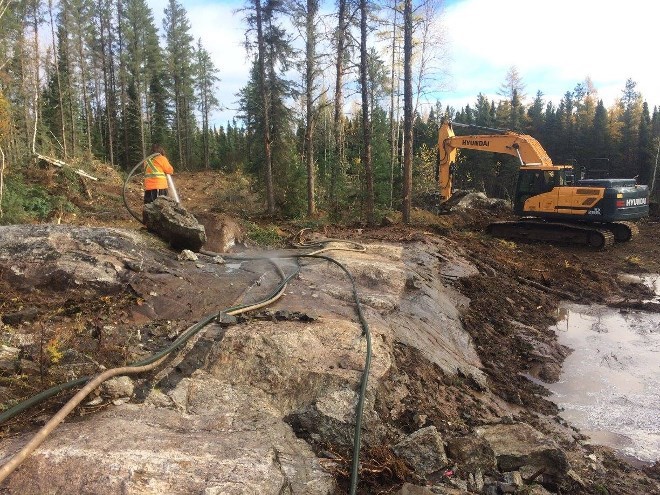Rock Tech updates Georgia Lake lithium resources with lower grades


Rock Tech Lithium (TSXV: RCK) released a prefeasibility study for its Georgia Lake lithium project in northern Ontario showing lower resource grades and a reduced net present value, while dropping a plan to build a refinery.
The updated indicated resource comes to 10.6 million tonnes grading 0.88% lithium oxide, inferred resources of 4.2 million tonnes grading at 1% lithium oxide, the company announced on Wednesday. The study also included a first probable mineral reserve for Georgia Lake estimated at 7.3 million tonnes grading 0.82% lithium oxide.
That compared with a previous combined measured and indicated resource of 6.6 million tonnes grading 1.16% lithium oxide and an inferred resource of 6.7 million tonnes grading 1.16% lithium oxide in a preliminary economic assessment (PEA) released last year.
Georgia Lake, planned as an open-pit and underground mining project, is located 160 km northeast of Thunder Bay.
The Vancouver-based explorer’s new study projected an after-tax net present value of US$146 million with a discount rate of 8% compared with US$230 million at the same discount rate estimated in the PEA. However, the new study forecast an after-tax internal rate of return of 36% (based on a spodumene concentrate price of US$1,500 per tonne) versus 20% in the PEA.
The new study supported the construction and operation of a 1-million-tonne-per-year concentrator at Georgia Lake. The project would cost US$192.2 million to build, with sustaining capital costs of US$98.5 million including closure after a nine-year mine life. The prefeasibility forecast average annual spodumene concentrate production of 100,000 tonnes at a cost of US$719 per tonne.
But the study didn’t consider a 15,000-tonne-per-year converter for refining some of the output as had been envisioned in the PEA. Instead, the company said the output might be refined at its proposed converter in Guben, Germany, at a company owned and operated converter in North America or by selling the output to third-party refiners.
"These results support the integration of Georgia Lake with the downstream conversion industry, where we have been building strong partnerships and extensive know-how,” Rock Tech chief executive officer Dirk Harbecke said in the release. “The encouraging results also demonstrate that we are well positioned to explore potential fields of collaboration in the North American and European electric vehicle supply chain.”
The company intends to proceed with a feasibility study and make a production decision next year, it said. Last month it agreed to a five-year, $2-billion deal with Mercedes-Benz to supply 10,000 tonnes per year of battery-grade lithium hydroxide from the German plant to the automaker.
Comments